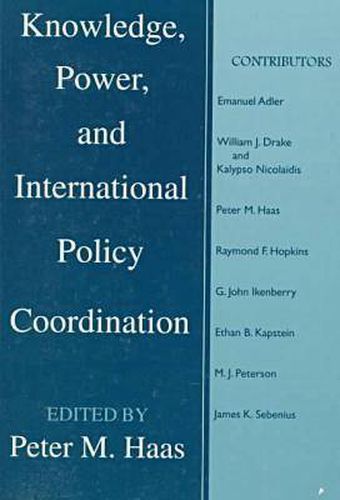Readings Newsletter
Become a Readings Member to make your shopping experience even easier.
Sign in or sign up for free!
You’re not far away from qualifying for FREE standard shipping within Australia
You’ve qualified for FREE standard shipping within Australia
The cart is loading…






The increasing complexity of the world’s problems has escalated both the need for international policy co-ordination and the difficulty of achieving it. With that in mind, the contributors to this volume assess what happens to the distribution of power when policymakers rely on the counsel of technical experts to make decisions of international importance. Because the way states identify and respond to problems depends not only on how policymakers understand the issues but also on how the issues are represented by their advisers, the contributors examine the growing role that epistemic communities play in several areas: facilitating governmental learning; articulating the cause-and-effect relationships of global problems; helping to discern state interests; framing the issues for collective debate; proposing specific policies; and identifying salient points for international negotiation.
$9.00 standard shipping within Australia
FREE standard shipping within Australia for orders over $100.00
Express & International shipping calculated at checkout
The increasing complexity of the world’s problems has escalated both the need for international policy co-ordination and the difficulty of achieving it. With that in mind, the contributors to this volume assess what happens to the distribution of power when policymakers rely on the counsel of technical experts to make decisions of international importance. Because the way states identify and respond to problems depends not only on how policymakers understand the issues but also on how the issues are represented by their advisers, the contributors examine the growing role that epistemic communities play in several areas: facilitating governmental learning; articulating the cause-and-effect relationships of global problems; helping to discern state interests; framing the issues for collective debate; proposing specific policies; and identifying salient points for international negotiation.